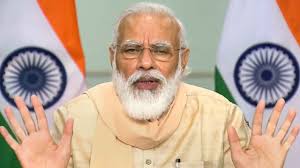World
Puerto Rico girl wins Miss World 2016 title
Maryland: Stephanie Del Valle from Puerto Rico was crowned the Miss World 2016 here, with representatives from Dominican Republic and Indonesia as runners up. India’s Priyadarshini Chatterjee only made it to the top 20.
Miss World 2015 Mireia Lalaguna Royo crowned the 19-year-old Stephanie — the second Puerto Rican to hold the title after Wilnelia Merced won it in 1975 — at the event’s grand finale held at the MGM National Harbor here on Sunday. The winner was ecstatic a she sat down to be crowned. The event was aired live on Zee Cafe.
Stephanie pipped the other top four finalists from Kenya, Indonesia, Dominican Republic and Philippines to win the title. Indian contestant Priyadarshini lost out on the title after making it to the top 20 at the pageant. She featured in the top five contestants for the Beauty With a Purpose title, which was eventually won by Miss Indonesia.
The last time an Indian won the Miss World crown was Priyanka Chopra in 2000. Other Indians who won the title in the past include Reita Faria (1966), Aishwarya Rai (1994), Diana Hayden (1997) and Yukta Mookhey (1999).
A Delhi-based girl from Guwahati, Priyadarshini was the first candidate from the northeastern region at the Miss World pageant. All of 20, she is a student of sociology.
She was happy to “represent a civilisation as old as time itself, the land of myriad cultures, traditions, languages and religions” at the gala, she had said in her introduction video for the contest.
This was the 66th edition of the gala, which put the contestants through a series of challenges and interviews to determine who will win the coveted title of Miss World 2016 and become the ambassador of the motto ‘Beauty with a purpose’.
The Miss World pageant, created in Britain by Eric Morley in 1951, is the oldest surviving major international beauty contest. It is one of the three most publicised beauty contests in the world, alongside the Miss Universe and Miss Earth contests.
World
Lockdowns in China Force Urban Communities to Defy Censorship and Vent Frustration Online

Shanghai’s rich middle class is leading a wave of online dissent over the strict and prolonged lockdowns imposed in various parts of the country. Chinese internet censorship is struggling as patience is wearing thin in many urban centers, coming up with creative forms of online protests.
Social Media Posts Revealing Lockdown Tension in Shanghai
Drawn-out lockdowns are nothing new in China as authorities insist with the nation’s zero-Covid policy since the start of the pandemic. Currently over This time around, however, metropolitan areas like Shanghai are increasingly difficult to keep quiet, given that its more than 25 million residents have seen weeks of total isolation along with food shortages and many other service interruptions.
Dozens of towns and reportedly over 300 million Chinese citizens have been affected by lockdowns of different severity. As expected, urban netizens have been most outspoken over their difficulties by finding creative ways to get around state censorship and bans placed on topics, news comments and spontaneous campaigns.
Shanghai residents have been using mobile proxies and hijacking seemingly unrelated hashtags to talk about healthcare issues, delivery failures and the overall severity of their situation. The “positive energy” that the Chinese government wants to transmit during the recent prolonged series of lockdowns does not come naturally to those counting food supplies and online censors are working hard to filter words, trending topics and undesired social media sharing.
WeChat groups and message threads are under constant monitoring. Posts questioning the zero-Covid approach have been quickly deleted, including by leading Chinese health experts like Dr. Zhong Nanshan. Video footage is soon censored and protests and investigations are quickly made to disappear.
Where this has not worked, officials have exposed banners with warnings and outright threats like “watch your own mouth or face punishment”, while drones have been patrolling the city skies. Yet, if anything, this has led to further tensions and unspoken confrontation with Shanghai’s educated and affluent middle class.
Creative Online Solutions Harnessing Civic Energy
Announcements by Chinese social media that they would be publishing the IP addresses of users who “spread rumors” have not helped either. Tech industry research has shown that much of Asia’s tech-savvy population has a habit of using mobile proxies and other privacy tools, quickly finding workarounds to browse the internet freely and talk to the world about the hottest topics.
The sheer volume of forbidden posts is already a challenge for the very censorship system, experts explain. Unable to track all trending hashtags, state workers overlook topics that speak about the US, Ukraine or other popular news. Linking human rights elsewhere to their situation, Chinese online dissidents establish their informal channels and “hijack” the conversation to share personal or publicly relevant information about the Covid suppression in their town.
Sarcastic and satirical posts still dominate. Others hope to evade the censors by replacing words from famous poems or the national anthem. One thing is certain – social media, when harnessed with the right creativity, has proven its ability to mount pressure on the government in even some of the most strictly controlled tech environments like China.
























